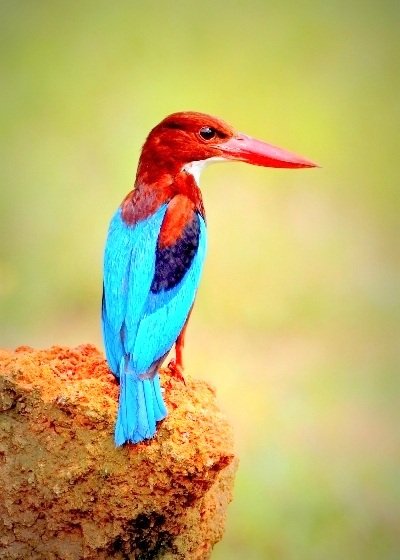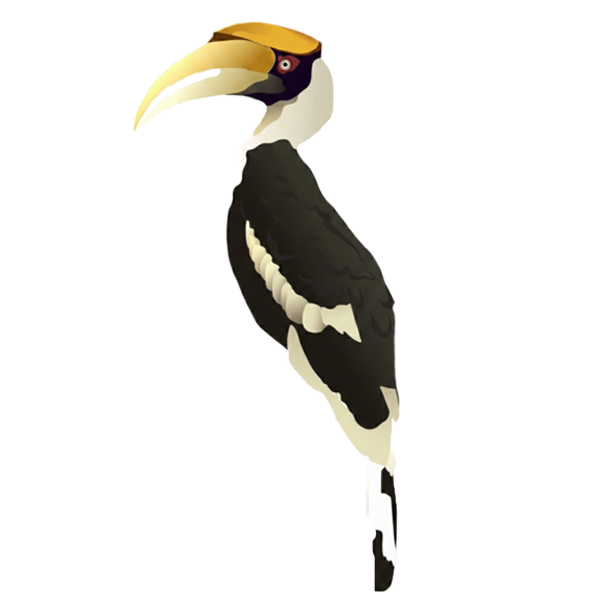My son who is seven and had never managed to walk along any piece of wood, let alone one that was only 6in wide gave a little wobble. It was as if time stood still. He then edged towards the feeding platform where the man in charge of the fish farm grabbed him.’Oh, Mummy,’ he said crossly, when I offered to strap him to my back for the return journey, 'I've done it before.'
It wasn't the first time I questioned the sanity of going to the Malaysian rainforest for half term. The flight took 12 hours and that was just to Kuala Lumpur. We had to change planes and fly to Langkawi, a small island, sandwiched between Malaysia and Thailand, only to have a 45 minute drive to our hotel. I can’t pretend it was not a long haul but our two boys, Cosmo, and Henry, five, took it in their stride helped, I confess, by watching the highly unsuitable movie Wild Wild West on the seatback TVs on the plane. We were staying at the Datai. To call it a hotel makes it sound too formal. To call it a resort makes it sound like an 18 to 30, up all night rave hole. In essence, the Datai Is a retreat one should first of all describe where it is.
TEN years ago, the northwestern corner of Langkawi was uninhibited rainforest. Much of it still is, apart from a strip carved out of the edge of a mountain, overlooking the beach. It is this glorious untouched landscape that has been turned into the Datai's grounds. You could have a very sybaritic holiday here. Indeed, everyone else seemed to be lying around the pool, having a massage in a waterside spa, or swimming in the warm clear sea. But our boys were having none of that. The idea of lying anywhere was treated with complete scorn so boring. No, we had come to look at nature, but while we wanted the morning and landscape to be wild I especially wanted to do so in comfort, without going to a malaria ridden encampment miles from the nearest hospital. The Datai is special because it fulfils both briefs.
Every morning for an hour and half there is a nature walk with the resident naturalist, Irshad. Half Punjabi half Portuguese, he became a hero figure to the boys. With his vast walking stick and bag full of reference books to help guests’ identity species they had seen on the travels, he was a mine of information. He also had that gift of making what' was happening in the forest sound like a morning on the floor of Goldman, Sachs a legacy of his five and half years as a merchant banker.
Irshad also took us along a road and pointed out the different herbs many of which are being analysed by Western drug companies that have the most amazing properties. There was a small fern like plant that rolled itself into a little ball if it was touched, a relation of the four leaf clover that was used in folk medicine to help lengthen attention span (I thought about gathering bundles of that one), and one that had a good track record for promoting fertility. There was also a plant that Irshad was rather wary about pointing out. This was an ancient love drug that he swore was more powerful than Viagra. The last time he had shown it to some guests; he found that the next morning they had dug it up. There were also unaccompanied walks into the forest, where we would follow a track.
The next morning, things were even better. We were taken on a boat trip by Irshad's brother Tika, down the coast to Langkawi's mangroves. We stopped off at the fish farms, then hugged the spectacular coastline and, after spotting eagles, dolphins and a monstrously large monitor lizard, the boat dropped anchor in a srnall, secluded bay.
'Right, all out,' he said as we waded through a natural rock tunnel I couldn't help noticing that the water seemed to be lapping the five year old's chin until it opened up into a hidden cove. 'It's Treasure Island,' he exclaimed excitedly. And it was. There were trees laden with fruit, and, on the sandy shore, beautiful shells occupied by hermit crabs scuttling in a surreal way along the beach
We were reluctant to leave, but Tika promised other adventures, including a suitably scary bat cave complete with impressive stalactites. After that it was back in the boat. We sailed for a short while before taking a sharp turn into the mangroves swamps. These forests of charred trees, stunted by lack of light, have a primeval air about them. Stripped of all colour, an elaborate network of tree roots rises out of a viscous grey sludge.
But what is so unnerving is the quietness, broken only occasionally by the sound of a kingfisher a bright streak of colour in a monochrome world flitting through the dark canopy. The boat drew up alongside a wooden walkway and there in a pool of light stood a pitched roof building on stilts. This was the Barn Thai Restaurant, which is joined to the mainland by a 500 yard walkway through the mangroves.
Here, my husband and I sat on the terrace overlooking the river, drinking a dusty bottle of Dom Perignon 1990 a surprising find in the middle of a swamp while the boys made friends with a group of fishermen who were catching catfish. Their new friends lent them a reel of thread with a vicious looking hook dangling down, and the boys sat hunched over the water's edge, staring at the long, slithering fish, and rather ineffectually trailing the tackle through the water. They didn't catch us lunch, but that moment of silence was a memory I wanted to bottle.

